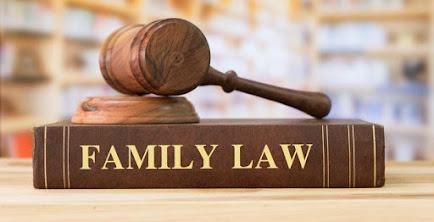Family attorney in New York
Family attorney in New York
Negotiations and lawsuits are the two ways to come to a family law case or agreement. In most cases, negotiations are successful and agreements are reached with few arguments or time constraints. However, in some cases it is necessary to argue in a courtroom or with a judge making the agreement. With an experienced family lawyer in Garden City NY by your side, you can determine what is best for your situation and be most successful in a courtroom.
The cases that often accompany prosecutions are as follows :
To separate
Child custody and alimony
Pension
Paternity rights
Family disputes are more than signing documents for your agreement. Your Family attorney in New York will be different after such an ordeal and will need support. With your lawyer by your side, they can help you understand the legal process you are going through, as well as help you find a fair settlement that works for you and your family after the trial is over. Having a lawyer in your case with you can ensure that all documents, tight deadlines, and your needs are properly addressed and represented. If the paperwork is incorrectly filled out or a deadline is missed, the case could take longer and cost you more money. Our trusted and experienced attorneys at have been helping clients in such cases for years and ensuring that you get the most successful case as soon as possible. we understand how difficult your case can be and we're here for you every step of the way. Our New York family lawyer has years of experience in such cases and is ready to treat your case with the same individual attention and professionalism that your case needs and deserves. Contact our office today to discuss your case and determine the best next step for you and your business.
Family matters are a type of civil matter, but they usually involve matters between or involving spouses, parents and children. Family courts deal with a wide variety of home affairs cases. The most common questions dealt with in family court include:
Dissolution of marriage.
When a person wishes to end a marriage, they can file a complaint with family court to request a court order ending the marriage. Marriages can be broken up by divorce or annulment cases. The court may also allow legal separation, where the court makes orders regarding property, child support and custody, but the parties remain legally married. You can find more information in the Divorce, Cancellation or Divorce sections of this site.
Paternity and custody.
When a man is to be declared the father of a child, any parent can take legal action to ask the family court to determine paternity. This definitively establishes the father of the child. Unmarried parents can also apply to the court for child custody, physical custody, visiting hours and child support. More information on these types of issues can be found in the Guardianship, Paternity and Child Benefit section of this website.
Protection against domestic violence order.
Victims of domestic violence can ask family court to issue protection orders to remove their abuser. See DV Protection Orders for more information.
Name change.
A child or adult may be able to legally change their name through a name change lawsuit in family court. Visit the Rename section for more information. Guardianship. Guardianship is about determining who is responsible for medical, personal and financial decisions about a child or an adult unable to care for themselves . More information can be found in the Trusteeship section of this website.
Termination of parental rights and adoptions.
If there are serious reasons why a parent should not have a parental relationship with a child (such as abandonment, neglect, abuse, etc.), family court may terminate that parent's rights. . If someone else wants to become the legal parent of a child, the family court can grant an adoption that legally establishes the parent-child relationship. For more information, see the Adoption and Termination of Parental Rights section of this website.
youth affairs.
The Family Court oversees all cases where there are allegations of child abuse, child neglect or where minors are accused of participating in illegal behavior. These cases are largely handled by the prosecution. The family court can also approve work permits for minors under the age of 14. For more information, see Work permits for young people.
Emancipation and approval of underage marriages.
People under the age of 18 who wish to marry or be " emancipated " (that is, they are legally free from parental control) can seek approval from the family court. The Support Center does not have forms for approval of underage marriage.


Comments
Post a Comment